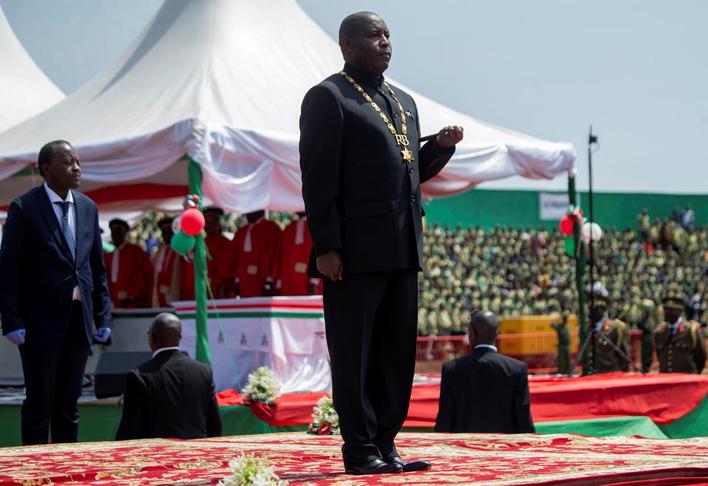×
The Standard e-Paper
Smart Minds Choose Us

Burundi’s new president, Evariste Ndayishimiye, promised on Thursday to unite a country that has been cut off by aid donors due to rampant human rights abuses, after he was sworn in early following the sudden death of his predecessor.
Ndayishimiye, 52, a retired army general, won last month’s presidential election as the ruling party’s candidate, defeating the opposition’s Agathon Rwasa and five others. He had been due to take office in August, but the death of Pierre Nkurunziza this month brought the succession forward.